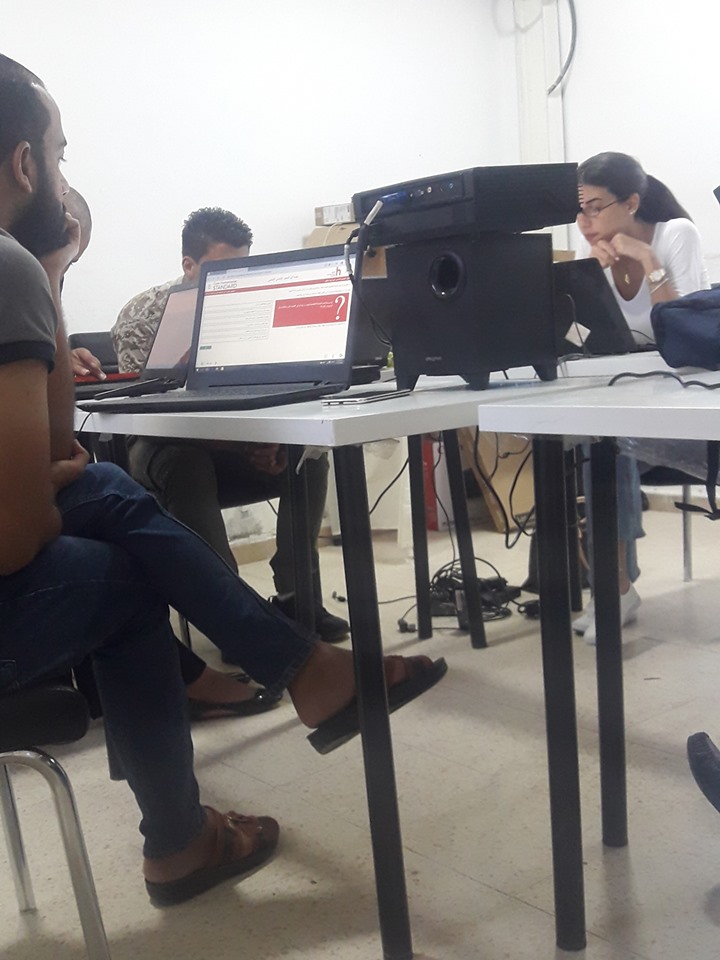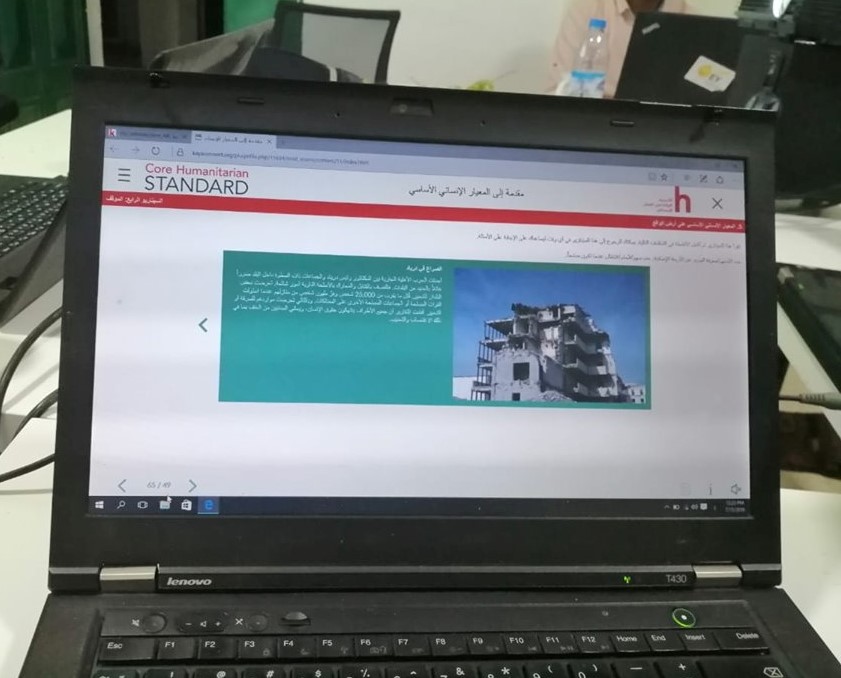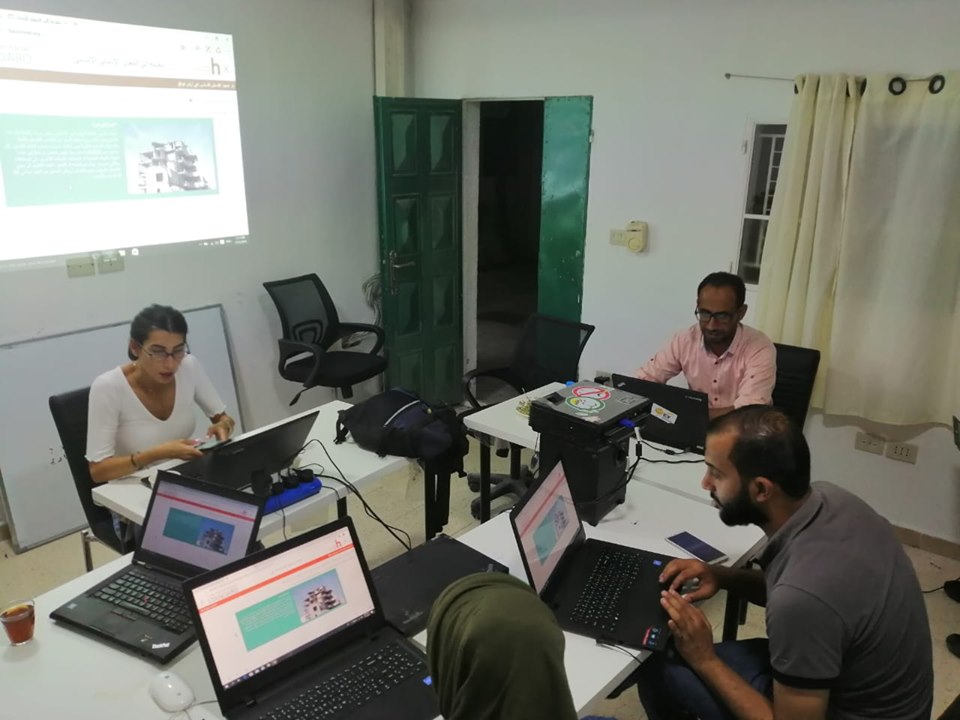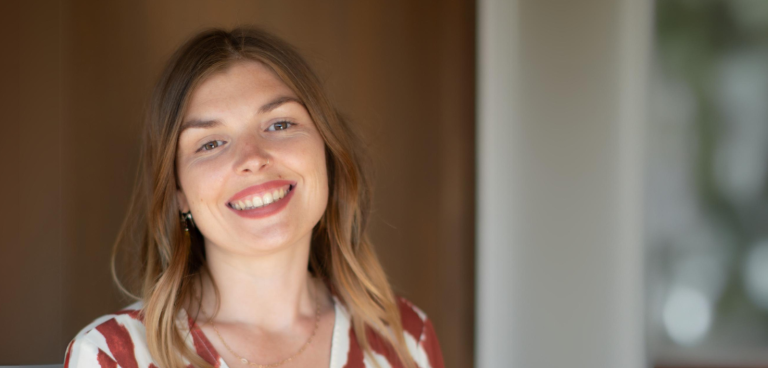We reached out to Khaled and his colleagues to find out more about how Kaya had been helping to make an impact to his local community.
Hi Khaled! Thanks for taking part in this interview – could you tell us a bit about how you began your journey in the humanitarian sector?
Hello everyone! Thank you for the opportunity. I am a Jordanian citizen and identify as Jordanian – Palestinian. I am originally from Nablus in Palestine, live in Madaba and work in Amman. I am a co-founder of ‘One Love’ also known as ‘Sama Gaza’, a Jordanian non-profit organization based in the heart of the Palestinian refugee camps, mainly in Jerash refugee camp, which is also known as ‘Gaza’ Camp.
I’ve been working in the humanitarian sector for 9 years now and currently work for the Norwegian Refugee Council (NRC) as a team leader in the Information, Counselling and Legal Assistance Program, covering different areas in Amman. I chose to work in this sector because I have a strong passion for learning and want to be able to help the Palestinian community.
As Palestinian refugees, we are no strangers to injustice – all we can do is try to do our part to prevent it and to support those affected by it, any way we can. I believe we all have a responsibility to support our communities, and to make this world a better place.
Can you tell us how your organisation ‘One Love’ began?
During the war on Gaza in 2014, people started to move to escape the violence. A group of us met in one of the hospitals that was receiving injured people from Gaza. A six-year old girl named Sama arrived with shrapnel in her skull. She spent around six months in the hospital and my friends and I decided to sponsor Sama’s stay. We tried to spend as much time with her as possible to help her heal. Unfortunately, Sama didn’t make it; she died that year.
After this terrible event we founded the organisation ‘Sama Gaza’ in her name. Sama Gaza is focused on supporting the Palestinian community wherever they are, but we are currently most present in the Palestinian refugee camps in Jordan – more specifically in Jerash camp. In this camp, more than 35,000 people – originally from Gaza and Bir Shiva – fall under the “stateless” status. Sama Gaza is committed to improving the lives, minds and wellbeing of the Palestinian people. We do this work so that we can look in the mirror and say we have tried our best to represent ourselves and to support each other.
What are some of ‘One Love’s’ key roles in the local Palestinian community?
Our organisation is focused on providing opportunities for individual development, whether it is with children, young people or adults. Due to housing space limitations in the camp, large numbers of children have to study in overpopulated classrooms at school, and cramped spaces at home which make it hard for children to develop, express themselves, explore their talents and discover new ones. In response to this, Sama Gaza set up a Cultural and Community Centre which provides room for extracurricular sessions that give them a space in which they can explore and grow.
We also have a Vocational Centre which provides skills and opportunities for young people and adults. There’s a sewing space, a rooftop garden and a classroom equipped for a variety of learning purposes, including Kaya’s online courses! We also teach computer literacy and vocational skills. We’re keen to expand the spaces but the Vocational Centre requires a lot of resources to run and due to our grassroots nature, we have to take it one step at a time.
Sama Gaza also has a large humanitarian component. We organise local winter aid distributions, as well as non-food items (NFIs) and cash assistance. We have a clothes bank and bazaar every season, as well as special Ramadan and Eid activities.
How wonderful that you’re able to offer a specific space for Kaya courses! How did you first find out about Kaya?
We learned about Kaya’s learning resources at the Norwegian Refugee Council, as we have used the courses for staff capacity building over the last two years. We needed to start building the capacity of our core team of volunteers at Sama Gaza, and Kaya’s range of courses seemed like the perfect fit. We set up weekly sessions for our volunteers to meet and take the courses together. We’ve been keeping it up for almost two months now and it’s been very successful.
That’s great to hear – what kind of people attend the Kaya sessions?
It’s mostly young people and adults from 19 to 35 years old, all of whom are really eager to learn and motivated to improve themselves and make a difference in the community. Most of them have been to university and have diplomas, some are teachers, engineers, managers and NGO workers. They are keen to develop their skills and learn applicable knowledge that supports their experience as both refugees and volunteers in their communities. Due to limited space we can only have 8 people in our class at a time, however in the future, we hope that each member of the core team will facilitate the training for another 8 members of the Palestinian community.

Mostly young people and adults from 19 to 35 years old, all of whom are really eager to learn and motivated to improve themselves and make a difference in the community.
Could you walk us through a typical “Kaya session”?
Sure! The Kaya sessions happen in the evening when everyone has finished work. First we set up the laptops and each student logs-in to their Kaya account. Then we go through the training together, slide by slide, helping each other learn. Each session takes around 3 hours, and we go at our own pace, making space for discussions, which we really enjoy. I usually act as the facilitator, managing the group’s time and ensuring we stay on track. You can really see the impact Kaya has on people’s knowledge as their discussion points and perspectives improve throughout the sessions.

We’ve started off with the basics such as the Core Humanitarian Standard (CHS), the humanitarian principles, and we hope to gradually move on and introduce these principles to other groups in the community, allowing more people to use our spaces and to learn./,
What content would you like to see on Kaya?
We’d love to see live mentorship sessions on Kaya. For people who can’t travel, this would offer a wonderful opportunity to virtually meet inspirational and leading humanitarians, learn from them and hear their experiences first-hand. This kind of exposure would really help inspire local volunteers and allow them to feel more linked to the humanitarian world.
It would also be great to see some courses on project cycle management, and specifically a module on helping small organisations develop their mission statement, goals and objectives. We’ve always wanted to work on theory of change and logical frameworks, as we believe it really helps in the development of small initiatives into more structured and focused efforts, which could help them develop into a full board organisation one day.
What would you say are the greatest challenges surrounding humanitarian learning today and how has Kaya helped you to overcome them?
Most humanitarian standards are generally developed in the West. One of the biggest challenges facing the sector is the difficulty in then applying these standards to real-life, local situations. We understand the scenarios because we live them every day, but simple, locally focused learning resources are hard to find.
Exposure is also a huge issue: we have travel restrictions and can’t keep waiting for experts to visit us to be able to benefit from transfer of knowledge and experiences. We’re living in diaspora and many of us are detached as a community, in different countries around the world, or in different situations that challenge us.
Kaya has helped us on both of these counts by offering locally applicable learning resources in a virtual environment that allows everyone to feel more connected. We’re grateful to have access to these free resources and look forward to helping spread this essential knowledge even further.


